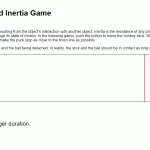Share this
You are seated at your desk, sweating profusely, anxiously waiting for the test to begin. As the invigilator distributes the test papers, you can only envision yourself being unable to answer any of the questions. The thought of failing the test looms over you like a dark cloud, weighing heavily on your mind. Once the test begins, your brain seems to go blank, unable to recall the information you worked tirelessly to study the night before.
If any of these experiences resonate with you, then you have endured test anxiety. Most people have faced test anxiety at least once or twice during their lives.
Test anxiety is a common and significant concern for many students, affecting their performance during tests and potentially hindering their overall academic success. The good news is, as a parent, you can teach your child to manage and overcome their test anxiety, enabling them to perform better in tests. This article aims to equip you with the knowledge and practical strategies to support your child through this challenge.
What is test anxiety?

Test anxiety is a type of performance anxiety that is characterized by excessive nervousness, tension, or feelings of apprehension before, during, or after taking a test. According to the American Test Anxieties Association, approximately 16-20% of students experience high test anxiety, while another 18% may suffer from moderate test anxiety. This potentially debilitating condition not only causes distress but also leads to underachievement, as students may struggle to recall information or fail to demonstrate their true capabilities during exams.
Test anxiety may result in a range of emotional, cognitive, and physical symptoms. It most commonly occurs when students face high-pressure academic situations, such as final exams and standardized tests. Recognizing the symptoms of test anxiety in your child is an essential step in providing the necessary support. You can observe how your child behaves around their test date, or you can talk to your child after their test.
1. Emotional Effects
- Feelings of fear, nervousness, and extreme worry
- Low self-esteem, a sense of helplessness, or hopelessness
- Mood swings, irritability, and anger as the test date approaches
- Experiencing panic attacks or anxiety attacks before, during, or after the test
- Depression and feelings of worthlessness around the test date.
2. Cognitive Effects
- Difficulty concentrating, organizing thoughts, or understanding instructions during a test
- Mind going blank, ‘freezing up’, or memory blocks during the test
- Negative thought patterns (e.g., catastrophic thinking regarding one’s performance in the test)
- Self-doubt, self-criticism, and comparing oneself negatively to others
- Inability to effectively recall information or manage time during exams
3. Physical Effects
- Upset stomach, nausea, or digestive issues before or during a test
- Headaches, migraines, or dizziness
- Increased heart rate, palpitations or chest pain
- Sweating, shaking, trembling, or muscle tension
- Insomnia, sleep disturbance, or fatigue before a test
4. Effects on Academic Performance
- Lower test scores even though your child knows all the answers
- Less efficient in preparing for a test because of lack of focus or negative thoughts
5. Behavioral Effects
- Taking some substance to cope with the anxiety (e.g. overeating or drinking coffee)
- Development of avoidance behaviors or phobias related to exams or school
What causes test anxiety?

The primary causes of test anxiety can be traced back to a mixture of personal, academic, and environmental factors that vary among individuals.
One significant cause of test anxiety is personal pressure. The higher the stakes, the more pressure a student might feel. For example, a student who doesn’t experience much anxiety during a small quiz may face severe test anxiety during a final exam. Furthermore, some students may associate their self-worth and intellectual abilities with their test scores. For these students, failing a test would shatter their perceived self-worth, creating undue pressure to perform in the test.
Another cause is the thinking pattern of the students. Students who tend to worry or engage in negative thinking (“catastrophizing”) may be more prone to test anxiety. These “glass-half-empty” students often focus on the worst-case scenario; they think about everything that could go wrong in a test, such as the test questions being harder than anticipated, having not enough time to complete the test, or forgetting key formulas during a test.
Finally, a lack of adequate test preparation, poor time management, and ineffective study techniques can contribute to increased anxiety levels on test day. When a student hasn’t prepared well for a test, they might fear failure. This fear exacerbates feelings of anxiety, which in turn negatively affects their performance during the test.
Understanding the root causes of your child’s test anxiety can help parents effectively address this issue with their child. To comprehend what is causing test anxiety in your child, you may need to engage in some reflection with your child and have open conversations with them. Encourage your child to be introspective. Discuss their feelings and concerns candidly. The key is to be non-judgmental, ensuring that your child feels safe while talking about their emotions. Alternatively, you can suggest that your child tries free writing—this involves jotting down their thoughts on paper without worrying about grammar or being read by others. Some children may find it easier to express their emotions through free writing instead of dialogue.
What are the strategies for overcoming test anxiety?

Here are some practical and effective strategies that you can use to help your child overcome their test anxiety and perform better in exams:
1. Encourage thorough test preparation
Proper preparation before a test can go a long way in reducing test anxiety. A considerable component of the test anxiety stems from the fear that the child may not perform well on the test. So, if the child thoroughly reviews and practices the material beforehand, they are likely to feel more confident when taking the test.
Help your child create a study schedule, divide tasks into manageable chunks, and establish a consistent study routine. Encourage them to review material regularly, such as every other day, instead of relying on last-minute cram sessions. Cramming immediately before a test does not boost confidence. Often, the review process is hurried and shallow, crucial details are overlooked, and insufficient practice is done. This results in the child having a lingering feeling that they may forget the material once the test begins. In contrast, regular review enables the material to be stored in their long-term memory and allows the child to feel more confident going into a test.
One highly effective time management technique involves planning the review process in advance. Encourage your child to write down the test date in their agenda and create a plan for reviewing the material leading up to the test date. For instance, let’s assume there is a test covering Unit 3 on Friday two weeks later. Your child could develop a plan similar to the one below:
- Over the weekend, begin reviewing notes up to the point covered in school and complete review questions for half of Unit 3.
- By Wednesday evening, complete all homework or suggested questions provided by the teacher, ensuring any unclear concepts have been clarified.
- On Thursday evening, go over all the material in Unit 3 and finish the review questions related to the unit.
By following this approach, the review process is thorough and methodical. Planning the review in advance and tackling it in smaller increments helps reduce the stress associated with test preparation.
2. Teach relaxation techniques
Teaching your child relaxation techniques can be beneficial in helping them cope with test anxiety. There are various relaxation techniques that can be taught to children, including deep breathing exercises, progressive muscle relaxation, visualization, and mindfulness meditation.
Deep breathing exercises involve focusing on taking slow, deep breaths, which can help calm the nervous system and promote relaxation. Progressive muscle relaxation involves tensing and releasing different muscle groups in the body. This releases tension and promotes a sense of relaxation. Visualization encourages the child to create peaceful and calming mental images, while mindfulness meditation teaches them to focus on their present experiences without judgment. For mindfulness meditation, apps like headspace might be useful.
Try using these techniques at home with your child. Encourage them to use these techniques before their test starts.
3. Try free writing before a test
One study found that when students were asked to freely write about their feelings and thoughts before a test, the performance gap between students with high math anxiety and those with low math anxiety narrowed. Free writing can help students confront their inner fears and apprehensions. By putting these feelings on paper, they can view them more objectively. They might realize, “Wait a minute. It’s only a test, and it’s not going to be the end of the world if I don’t do well.”
You can have your child try free writing at home before the test date. The key is to not look at your child’s writing. That way, your child knows their writing is kept private and free of judgement. Your child can also try free writing in school before a test. In that case, make sure your child put away the paper before the test starts so that it doesn’t appear like they are trying to cheat.
4. Promote positive thinking and self-talk
A pessimistic student imagines the worst-case scenario before and when taking a test. This contributes to heightened test anxiety, ironically making their worst fear come true. Adopting a more optimistic mindset and practicing constructive self-dialogue can help develop emotional resilience and reduce the distress associated with tests. This technique involves recognizing negative self-talk, challenging those thoughts, and replacing them with more supportive and self-encouraging alternatives.
To begin promoting positive thinking and self-talk, Try the following method:
- Tell your child to close their eyes and relax their mind.
- Imagine taking a test. Monitor the thoughts and note any messages of self-doubt or worry.
- Counter these negative thoughts by focusing on accomplishments, effort, and preparation. Say aloud mentally alternative phrases like “I have prepared well for this test” or “I can handle any challenges this test presents.”
By doing this, your child may be able to shift their mindset from one of anxiety to self-assurance.
Visualization exercise can also be helpful. This type of exercise involves a student imagining that they are calmly and successfully completing their test. Your child can try these steps:
- Close your eyes and take a few deep breaths, allowing your mind to clear and your body to relax.
- Picture yourself in the testing environment, sitting comfortably in your chair. Visualize the test booklet in front of you, your pen or pencil in hand, concentrating on the first question.
- With confidence, imagine yourself answering the first question, recalling the necessary information and working through the problem.
- Picture yourself progressing through the imaginary test, staying composed and focused, not letting feelings of panic or nervousness take control.
5. Encourage growth mindset and embrace failure
A growth mindset is the belief that one’s intellectual abilities and skills can be enhanced through effort and dedication. This mindset contrasts with a fixed mindset, in which children believe that they are either born smart or not.
Having a growth mindset is known to increase a child’s resilience in the face of challenges. This resilience stems from the child’s understanding that they can improve by tackling challenges head-on. They view failure as an opportunity for growth, as they can learn from their mistakes and perform better next time.
This type of mindset is advantageous in reducing test anxiety. Children with a growth mindset experience less stress because performing poorly on a test does not necessarily indicate that they are not smart or not capable; it simply means that they need to identify their mistakes and exert more effort next time.
Try telling your child something that I used to tell myself when I was in school: “If you give your absolute best, you won’t have any regrets later on, regardless of the outcome.” Whenever I experienced test anxiety, I would remind myself of this. It helped shift my mental focus from getting the result to putting in the work. And, most of the time, when you put in the work, you will achieve the desired result.
6. Seek professional help if needed
For some children, professional help may be necessary to address their test anxiety effectively. Consider seeking guidance from school counselors, psychologists, or therapists if your child’s test anxiety is severe or has not improved with self-help strategies.
Use test anxiety to improve test performance – rethinking about stress

Test anxiety can be debilitating and may decrease a student’s test performance, as mentioned in this article. However, what if it were possible to harness test anxiety to improve test performance?
While attending the University of Toronto and pursuing a degree in the hard sciences, I had to do tests after tests. The tight schedule and heavy workload caused significant stress for most science students, including myself. I found it helpful to think of tests as a type of game, similar to a soccer or tennis match. I viewed tests as simply representing a friendly game against fellow students, and performing well on a test meant winning the game. Prior to the test, I would do whatever it took to prepare, and after the test, I would eagerly await the results to see if I had won the game by placing in the top tier.
By viewing tests in this manner, test-related stress actually helped me improve my academic performance in two ways. First, it served to elevate my performance during the test, as stress kept my concentration high and my thinking sharp. Second, test anxiety prior to the test motivated me to thoroughly review and practice beforehand. Since I was worried about forgetting material during the test, I would review everything two or three times and triple-check my notes to ensure I had memorized everything necessary.
How you view stress and anxiety matters
Several studies show how you frame test anxiety and stress in your mind matters. If you frame stress and anxiety as a beneficial thing, you feel less stress and perform better. A study by Jeremy Jamieson gave two different kinds of instructions to two sets of students at a community college before they took a math test. One set of students were instructed that stress has adaptive benefits, while the other set of students were told to ignore stress. The students that were educated about the benefits of stress had less anxiety and better test performance than the other set of students. Another study showed that by reframing anxiety as excitement, people can improve performance in tasks such as public speaking.
Professional athletes, musicians, and performers all experience anxiety and stress before and during their performances. However, the most accomplished individuals don’t allow stress to impede their progress. Instead, they use it to enhance their performance. Similarly, students who effectively use stress and anxiety can improve their test performance. They view stress as a benefit and they use it to increase their focus and make themselves work harder.
Stress and anxiety are double-edged swords
Test anxiety and stress in general can be considered double-edged swords. While a student may be able to use their anxiety to enhance their focus and work ethic, prolonged exposure to stress and anxiety can have serious health consequences.
Children who experience long-term stress are at an increased risk for depression, substance abuse, and diseases such as diabetes and cancer. In countries like South Korea and Japan, where academic competition is intense, hundreds of children commit suicide each year due to school-related reasons. In their commitment to excelling in difficult exams or becoming the top of their class, these children often sacrifice their personal time, sleep, and relationships with friends to study. If this state is maintained long-term, they may become unhappy or even depressed. If they perform poorly on tests despite the sacrifices made, their self-esteem may take the plunge.
Therefore, balancing and managing stress and anxiety is crucial. Your child may want to view stress as a benefit and use it to help them succeed in their next test. However, they also need to learn how to “de-stress” and forget about tests and competition afterward. This kind of deliberate management of stress is easier said than done. It’s not something that even adults can easily accomplish, as it takes time to develop such mental fortitude. As parents, you can encourage this in your child without making winning the academic competition the sole focus. I would suggest utilizing various methods mentioned in this article to help your child reduce test anxiety. At the same time, teach your child not to fear test anxiety, reassuring them that it is a normal part of the learning process.
Conclusion
In conclusion, as a parent, you have a significant role to play in helping your child overcome test anxiety and perform better on tests. By understanding the causes and signs of test anxiety and applying practical strategies, you can empower your child to develop valuable coping strategies against test anxiety. In addition, test anxiety may be beneficial in enhancing test performance if it is viewed as a positive thing. Even so, prolonged anxiety and stress can lead to various health consequences, so it is important to manage one’s anxiety and stress for mental health purposes.
Richard Zhang, M.Ed., is an educator and a software developer with a Masters degree in education from University of Toronto and an immense passion for education and learning. Until the pandemic, Richard owned an award-winning learning centre in Toronto. For 15 years, he has taught and mentored hundreds of elementary, middle school, and high school students succeed in academics. He is also an app developer specializing in web and mobile application in educational and business sectors.












1 Comment
Comments are closed.